News
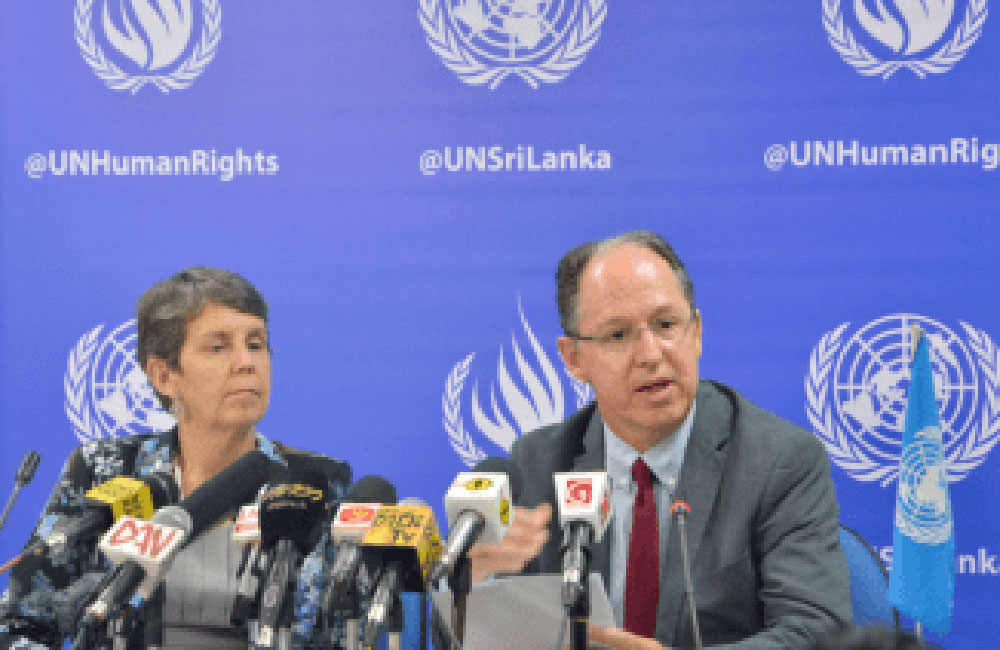
UN report on Lanka before UNHRC next month
A report on Sri Lanka is to be submitted to the UN Human Rights Council (UNHRC) in September by the UN Special Rapporteur on the Promotion of Truth, Justice, Reparation, and Guarantees of Non-recurrence.
Pablo de Greiff, the former Special Rapporteur on the Promotion of Truth, Justice, Reparation and Guarantees of Non-recurrence, visited Sri Lanka in October 2017 and a report based on his visit will be submitted to the UNHRC by the incumbent Special Rapporteur, Fabian Salvioli.
The 42nd session of the UNHRC is to take place in Geneva from 9-27 September 2019 and the Special Rapporteur is to submit a report on his work following which, a report on Sri Lanka is listed to be discussed.
The provisional agenda for the session notes that the Special Rapporteur is expected to submit the report on September 11th.
During his visit to Sri Lanka in 2017, the then Special Rapporteur had noted concerns over the failure to repeal the Prevention of Terrorism Act (PTA) and establish a mechanism to review expeditiously the cases of those held under the PTA.
He had further noted that although some of the land occupied by the armed forces, in some cases for decades, had been returned, the lack of clarity and comprehensiveness in the process had serious consequences from a developmental standpoint.
The Special Rapporteur had called for a comprehensive Transitional Justice Strategy that included a clear calendar for the implementation of the different transitional justice mechanisms, including truth, justice, reparations, and guarantees of non-recurrence; identifies needs in terms of budget, staff, and required expertise; and outlines the links between the different elements of the strategy.
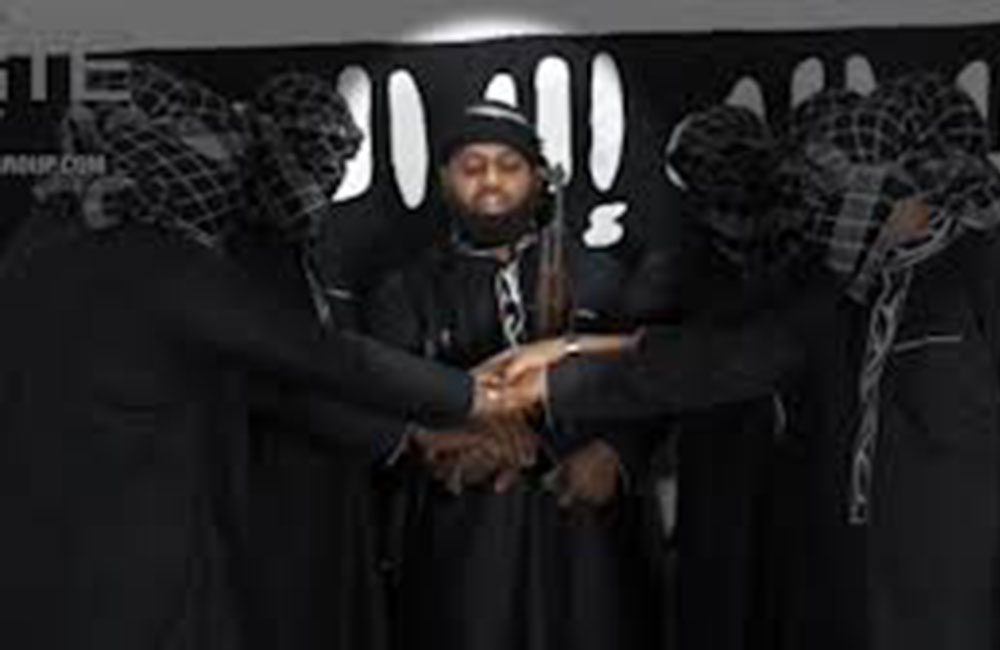
CID freezes Zahran's bank accounts and assets worth billions
Sri Lankan authorities have taken measures to freeze the billions of rupees in assets of terrorists and the associates involved in Easter terror attacks.
CID Director Shani Abeysekera today disclosed that a sum of Rs 134 million found in bank accounts of those suspects has been seized.
Investigations are being carried out as to how these suspects have been able to deposit such a massive amount in banks.
He disclosed that the CID had been able to unearth immovable property worth Rs.1.1 billion belonging to some these detainees.
The CID is in the process of identifying and compiling a list of assets belonging to those involved in attacks.
At least 63 suspects are in detention under the CID, he said adding that almost all affiliates of Zahran Hashim mastermind of the Easter terror attacks.
Abeysekera noted that the DNA test has confirmed the death of Zahran in the suicide bomb explosion
However, investigations are still continuing to unearth further information about his dealings, he added.
The connection between ISIS and Zahran and the clan has yet to be established he said adding that they been planning for some time to carryout the suicide bomb attack in Colombo.
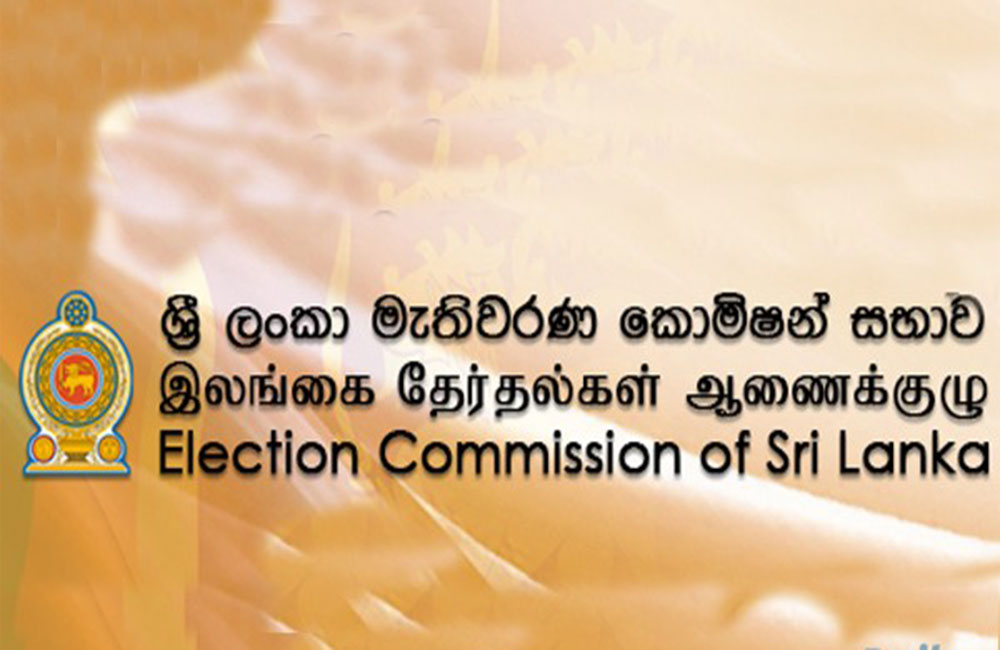
EU delegation assess pre-polls climate, EC yet to decide on foreign observers
A delegation of the European Union (EU) that visited Sri Lanka last week was engaged in assessing the pre-polls climate in order to decide if an EU elections observer team must be sent to Sri Lanka for the next presidential elections.
The EU delegation had held several meetings while in Sri Lanka, including with the Election Commission, Government, Opposition, civil society and the media.
Among the concerns raised during some of the meetings with the EU delegation was the possibility of journalists being intimidated ahead of the elections.
Meanwhile, the Elections Commission (EC) says a decision of whether to invite foreign election monitoring groups to observe the upcoming presidential election will be made after the relevant gazette is issued by the Government.
Director General of Elections Saman Rathnayake has said that when deciding, the Commission would consider the election monitoring experience of foreign observers as well as the strength and purpose of monitoring elections in Sri Lanka.
“We had a discussion with the EU Group last week and we informed them that the Commission will only consider inviting them after the gazette is issued and considering the necessity of foreign observers,” Rathnayake has told the media.
He has further noted that even though there was no decision yet, the Commission was in the process of forming the necessary conditions for foreign election monitoring groups to be invited to Sri Lanka.
There are 14,000 polling stations around the country and at least one representative from each election monitoring group should be stationed at each station.

Peace Corps to teach English in rural areas
Sri Lanka children mainly in rural areas will get an opportunity to learn English from American volunteer teachers very soon after a lapse of over ten years.
The first batch of 30 American Peace Corps Volunteers will arrive in Sri Lanka in late 2019.
They will undergo three months of comprehensive cultural, language and technical training before they are given their assignments to serve for two years in rural and urban schools.
Education Minister Akila Viraj Kariyawasam and US Ambassador in Sri Lanka Alaina Teplitz held discussions on arrangements to restart US Peace Corps mission in the land.
In 2016, the Government of Sri Lanka invited Peace Corps to return to work and assist in furthering the country’s development goals. A new bilateral agreement to re-establish the program was signed in February 2018.
Secretary to the Ministry of Education Sunil Hettiarachchi said that this programme was started in 2012 and some of the US Peace Corps volunteer teachers were assigned to teach students in Colombo schools including Royal and Thurston colleges at that time.
The current support for English teaching, he stated, would unlock the doors of opportunity for all Sri Lankans.
Several students who have learnt English from American volunteer teachers them at that time are still recalling their happy memories of engaging in extracurricular activities introduced by to leading schools by them at that time.
Peace Corps volunteers were present in Sri Lanka from 1962 to 1998. The Peace Corps Crisis Corps, now Peace Corps Response, also assisted in recover efforts following the 2004 tsunami.
The US Peace Corps was founded by President John F. Kennedy in 1961 and it has a long history of service in Sri Lanka.
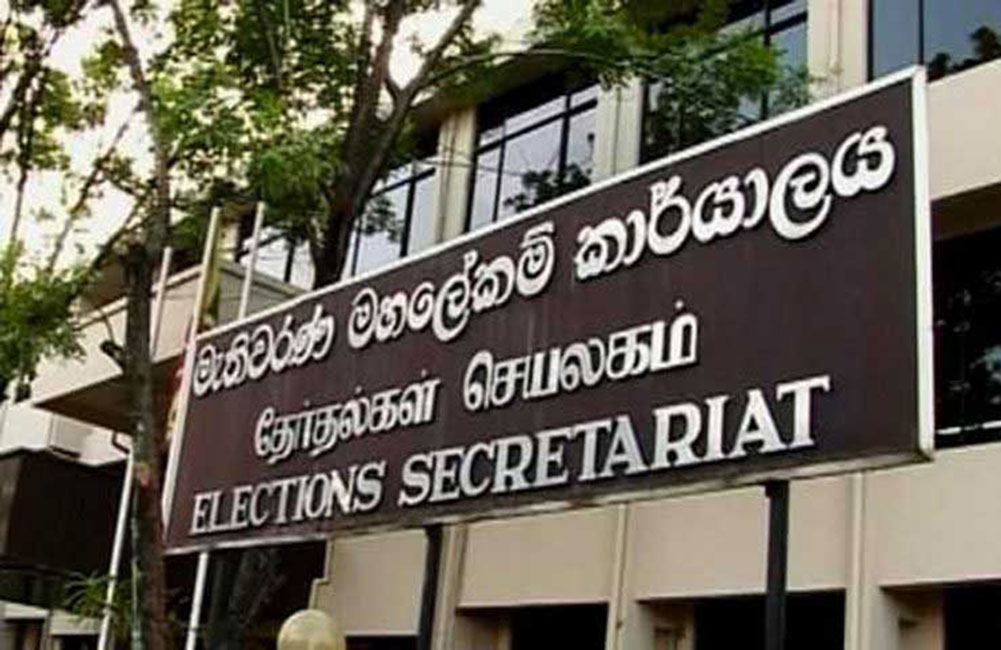
Election Commission to decide on vacant parliamentary seat
The Election Commission (EC) is to meet today (12) to discuss the issue of the vacant seat in Parliament due to the death of former Minister Salinda Dissanayake.
Chairman of the Elections Commission, Mahinda Deshapriya says all matters related to the parliamentary seat would be discussed today and a final decision would be made on who should be appointed to the vacant seat.
Controversy surrounds the move to fill the vacant parliamentary seat by the United People’s Freedom Alliance (UPFA) with the appointment of MP Shantha Bandara.
At the time of Dissanayake’s demise, Bandara was a representative in parliament as a national list MP of the UPFA.
However, soon after Dissanayake’s death, UPFA National List MP Shantha Bandara resigned from his seat last week to fill the vacant seat in Parliament.
Meanwhile, former North Western Provincial Councillor D.B. Herath had obtained the highest number of preferential votes after Bandara in the last general election from the Kurunegala District.
The argument that has been put forward to the EC is that since Bandara was a parliamentarian at the time of Dissanayake’s death, the vacant seat should be allocated to Herath, who is next in line in the Kurunegala list.
Deshapriya says there were matters to be discussed from both sides.
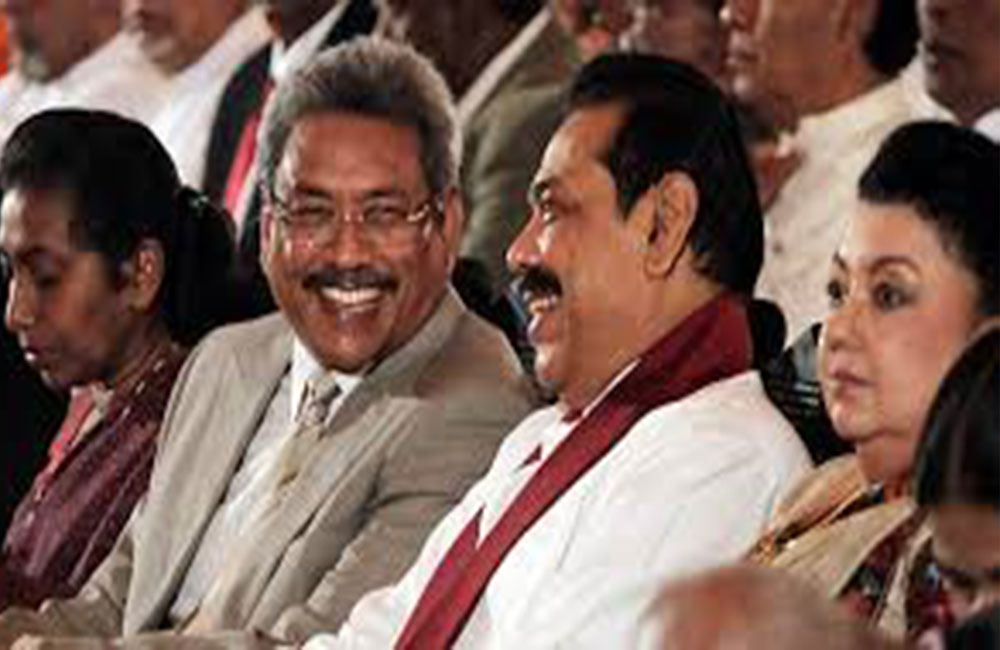
Gotabhaya's presidential candidacy backed by anti democrats
Gotabaya Rajapksa, now widely known as the 'terminator', is very much likely to be named as Sri Lanka Podujana Peramuna's (Pohottuwa) presidential candidate at a gala convention scheduled to be held at the Sugathadasa Indoor Stadium at 3 p.m. today.
Once Gotabhaya gains the presidential candidacy, SLPP supporters will be holding countrywide celebrations pre-organized by joint opposition MPS and former SLFP Ministers.
The outcome of the presidential election cannot be predicted at present but the people should be aware of Gota's presidential election campaign aimed at winning the election by hook or by crook, political analysts said.
People should be cautioned that Gota’s election campaign (if he is nominated) will be spearheaded by his military gang and ‘Viyath Maga’ pundits including stock market manipulators, white color criminals, opportunists and other stooges, they pointed out.
If Gotabaya gains power, our democracy faces a real crisis as the so called terminator will proceed to terminate democratic institutions and true messengers of the island, civil society activists warned.
Political parties and organized citizens must rally round and form an alliance to defend democratic norms and save the motherland from dictators surrounded by retired and frustrated military personnel, they added.

Private member's motion on private sector salary hike
A private member's motion on the salary increase for private sector employees is to be presented in Parliament as the government has failed to extend the salary hike accorded to the public sector to the private sector.
This assurance was given by opposition leader Mahinda Rajapksa in response to a letter sent to him by the “Industrial Sri Lanka Council", urging him to demand the government to grant this salary increase by way of a budgetary relief allowance.
Private sector employees numbering over 5 million have been deprived of this salary hike given to a small percentage of public sector workers, trade union leader Palitha Athukorala said.
Labour Minister Ravindra Samaraweera has assured the trade union representatives that, once the gazette is issued giving legal effect to the proposal, private sector workers will be entitled to a minimum monthly wage of Rs. 12,500.
But this pledge given by the minister has not been fulfilled as yet, he added.
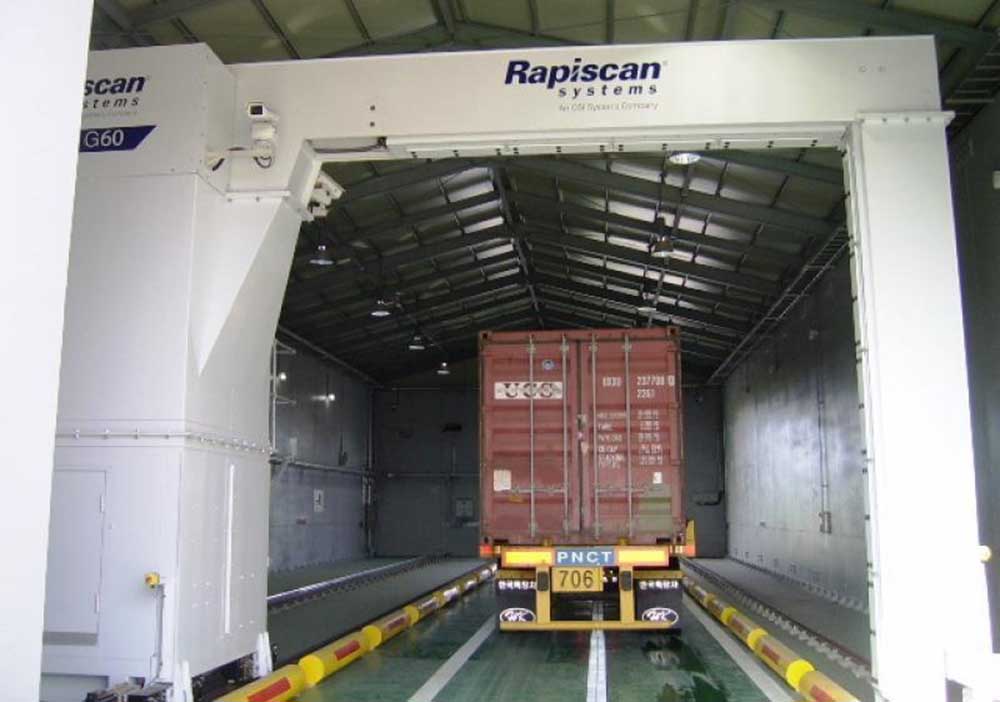
Customs goes high-tech to prevent smuggling
With the recent discovery of importing hazardous waste in containers into the island, Sri Lanka Customs is set strengthen the customs clearance and inspection of cargo.
Rapiscan Security Products Ltd will supply four high-tech scanners soon and it will be installed at customs' examination centres by next month, Customs Media spokesman and Director Sunil Jayaratne said.
This new arrangement will help officers from customs to carry out their duties in the face of a rapid increase in imports of narcotics, hazardous waste, and gold hidden in containers in to the island.
International cocaine smugglers are increasingly turning to Sri Lanka as a transit hub in Asia, presidential secretariat sources said.
Details of a scam where sand mixed with gold to smuggle it out of Sri Lanka have also been unearthed recently.
It has been revealed that gold mixed by-products disposed of by three jewellery manufacturers were due to be smuggled out of the country in the guise of exporting sand.
Several containers with such gold mixed sand were seized by customs officials.
According to the latest Auditor General's report, 51 containers with gold mixed sand were smuggled overseas through the Customs.
According to the special audit report, the quantity of gold being smuggled after mixing with sand is more than the number of gold fragments being disposed of by jewellery manufacturers.
The report revealed that the 51 containers were exported to countries including India, China,Korea,Thailand and Singapore
The containers were exported using a permit which allows sand exports only to India.
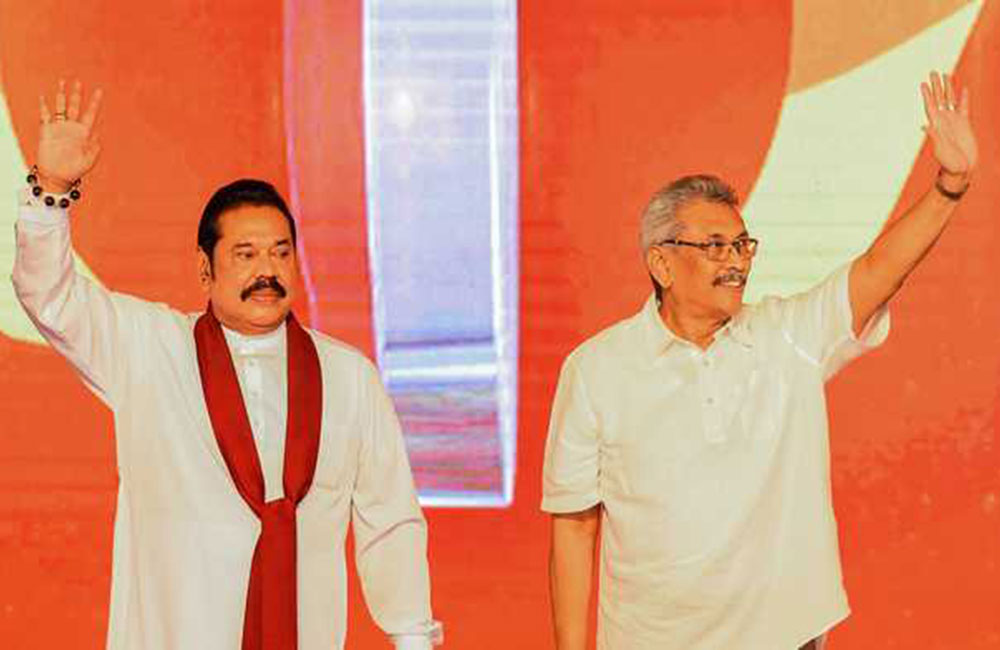
Gota formally launches presidential bid
Former secretary to the Ministry of Defence Gotabhaya Rajapaksa formally launched his bid for Sri Lanka's presidency Sunday, vowing to battle "extremist terrorism" in the wake of the deadly Easter Sunday suicide attacks.
The 70-year-old -- and his ex-president brother, Mahinda -- have been critical of Prime Minister Ranil Wickremesinghe's handling of the bombings, which were blamed on a local Islamist jihadi group in the Buddhist-majority nation.
The attacks targeting three churches and three hotels claimed the lives of at least 258 people and left nearly 500 wounded. Since then, the country has been under a state of emergency.
Gotabhaya Rajapaksa will stand for the Sri Lanka Podujana Peramuna (SLPP) party, which was formed recently by his older brother, who ruled for a decade from 2005.
The SLPP is a breakaway faction of the Sri Lanka Freedom Party (SLFP), which is nominally led by current President Maithripala Sirisena.
Highlighting frequent schisms in the country's politics, the SLFP in turn broke away from a coalition with premier Wickremesinghe's right-wing United National Party (UNP) earlier this year.
"I will not allow extremist terrorism under my presidency," Gotabhaya Rajapaksa said at the launch of his campaign for presidential elections, which are due later this year.
He was in charge of the defense ministry as its top bureaucrat when security forces crushed Tamil rebels and ended a 37-year separatist war in May 2009.
The no-holds-barred military campaign also triggered allegations of grave human rights abuses, including the killing of up to 40,000 Tamil civilians in the final months of fighting.
Gothabhaya Rajapaksa is currently on bail facing prosecution for allegedly siphoning off millions of rupees of state cash to build a monument for his parents when his brother was president.
He also faces a civil suit in the United States for allegedly causing the death of a prominent anti-establishment newspaper editor in Sri Lanka in January 2009.
Wickremesinghe has indicated he too wants to run for president, but his party is yet to nominate an official candidate amid major internal clashes over his leadership.
Incumbent Sirisena also plans to run again. - AFP
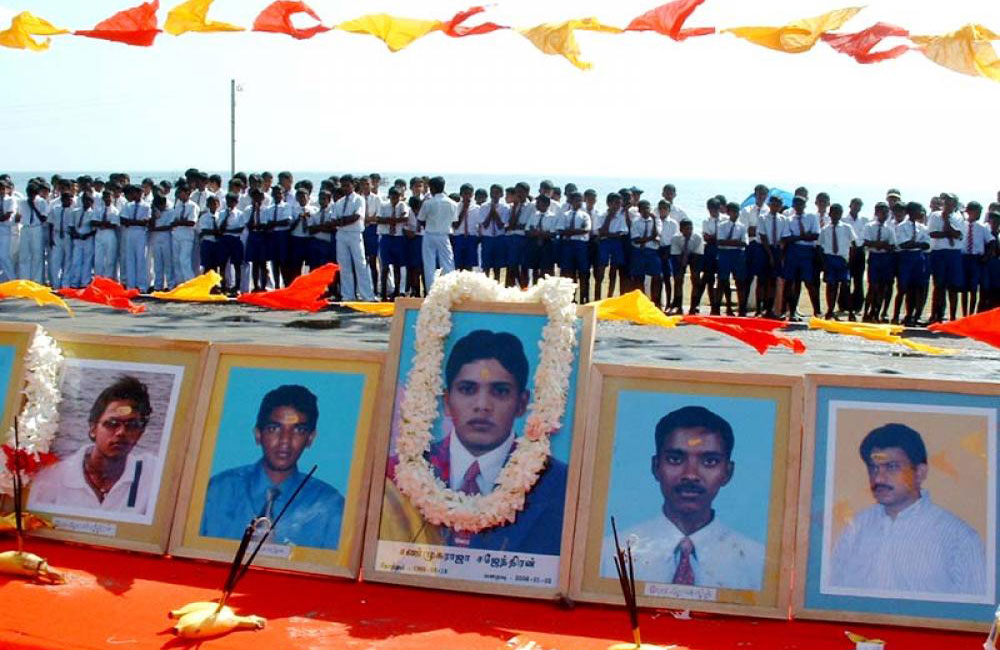
Reforms needed if fresh probe on Trinco 5 murders are to be effective - AI
The Attorney General’s decision to recommence investigations into the killing of five Tamil students – known as the ‘Trinco 5’, allegedly committed by the Sri Lankan security forces in Trincomalee on January 2, 2006, was welcomed by Amnesty International (AI).
However, Amnesty International has noted that reforms are required if the investigations are to be effective.
The decision follows the acquittal of 13 Special Task Force (STF) suspects earlier this month, reportedly due to a “lack of evidence”.
“Amnesty International welcomes the decision of the Attorney General of Sri Lanka to recommence investigations into the killing of five Tamil students – known as the ‘Trinco 5’ – allegedly by the Sri Lankan security forces in Trincomalee on 2 January 2006. However, reforms are required if the investigations are to be effective. The decision follows the acquittal of 13 Special Task Force (STF) suspects earlier this month, reportedly due to a “lack of evidence,” Amnesty International states.
Issuing a statement, Amnesty International noted the importance of a thorough, effective and impartial investigation into the killing to ensure that victims of human rights violations and abuses can access justice.
“The Government of Sri Lanka has an obligation under international law to deliver justice to the victims of the killings – either through the domestic court system, or through a judicial mechanism with a special counsel to investigate allegations of violations of international human rights law and international humanitarian law, which the government proposed to establish in UN Human Rights Council resolution 30/1 (2015),” Amnesty International states.
Amnesty International has also called on the Government of Sri Lanka to strengthen witness protection and mutual legal assistance from countries where witnesses and victims may now reside, in order to effectively investigate the killings and pursue accountability for the ‘Trinco 5’.
A journalist who took photographs of the bodies, Subramaniyam Sugirdharajan, was killed a few weeks later.
Dr. K Manoharan, whose son Ragihar was one of the victims was forced to flee the country after receiving death threats and continues to voice fears of reprisals against those who give evidence in the case.
The families of the other victims, including two youths who survived the attack were also forced to flee Sri Lanka.
“In particular, in light of the legitimate security concerns of witnesses and victims to the case, the government of Sri Lanka should amend the Assistance to and Protection of Victims of Crime and Witnesses Act of 2015 to further facilitate the participation of witnesses and victims outside of Sri Lanka. Such reform should seek to amend the law beyond the facilitation of recording evidence or statements remotely from a Sri Lankan diplomatic mission in the country from where a victim of crime or witness seeks to testify or make the statement,” Amnesty International notes.
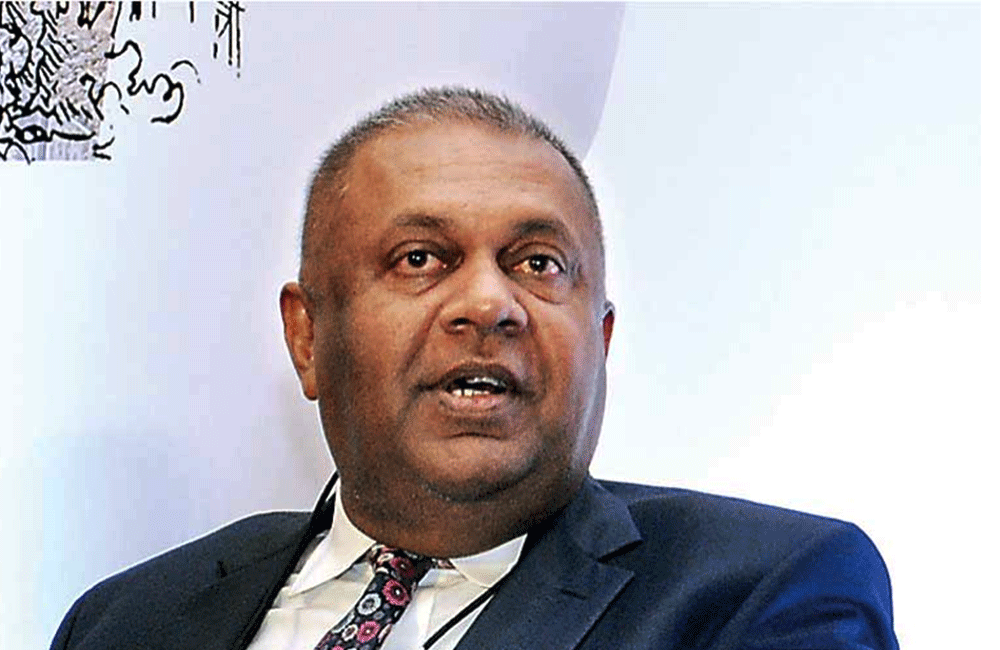
Next President is one who never swore allegiance to another country: Mangala
Finance Minister Mangala Samaraweera in a statement today (11) said that the next president of Sri Lanka will not be Gotabaya Rajapaksa or any Rajapaksa but the candidate democratically selected by the United National Party.
"The next president of this country will not be an alleged criminal who has the blood of countless journalists and innocents on their hands. Our next president will be a Sri Lankan citizen, born in Sri Lanka who never fled this country or swore allegiance to another land," Samaraweera said.
Full text of Minister Mangala Samaraweera's statement is found below.
"Earlier today, former President Mahinda Rajapaksa announced the presidential candidate for his family’s new political party, the Sri Lanka Podujana Peramuna (SLPP). For weeks he refused to confirm the circulating rumours about who the candidate would be. I have known Mahinda Rajapaksa for many years. We worked together side-by-side in the Sri Lanka Freedom Party (SLFP) under President Kumaratunga. We fought campaigns together and we won elections together. I have served in his Cabinet.
When I left Mahinda Rajapaksa’s government in 2006, he was a different man than I had once known. As President, his priority had become enriching, protecting and empowering his own family, not his country. Once upon a time, he was a true son of the soil, and a man whose heart beat as one with the ordinary citizens of Sri Lanka.
I wondered, after he was defeated in January 2015 by over 400,000 votes, and retreated to Medamulane, whether he had reflected and learnt a lesson from the error of his ways. I wondered if he regretted putting his family in charge of the state machinery and standing idly by as the nation’s coffers were robbed dry, and our journalists were bundled into white vans never to be seen again. I wondered if he regretted buttressing his political position by inciting racial hatred across Sri Lanka, first against Tamils, and later against Muslims.
In October 2018, when he conspired to orchestrate a coup d’état and illegally seize power, I realized that these were not the lessons he learned. The rule of law meant nothing to him. Democracy was only a buzzword to thunder from a stage. When Parliament stood against him, he had his minions try to destroy Parliament. It was only when the courts had the courage to stand up to him that Mahinda Rajapaksa finally aborted his coup and backed down.
Today I realized the terrible truth about what Mahinda Rajapaksa has really learned during his time in opposition. He does not feel that he gave his family too much power. He clearly believes that he did not give his family enough power. He does not feel that his merry men pilfered one too many million rupees or public money. He believes there is more left to milk dry. He does not feel that he terrorized this country too much. He clearly believes that he did not terrorize this country enough. He is not worried that he overly threatened the independence of the judiciary. He believes he should not have allowed any independence in the judiciary at all.
He does not regret the disappearance of Prageeth Eknaligoda, the murder of Lasantha Wickrematunge or the abduction and torture of Keith Noyahr and countless other journalists. He wants any remaining independent journalists to know that if they cross the man who committed those crimes, they will be next.
These are the lessons that Mahinda Rajapaksa has learnt. If not, he would not have announced today as his presidential candidate, a man who is on trial in two courts, one for corruption of over Rs 11 billion, and another for stealing over Rs 33 million in our taxpayer rupees to build a statue of his parents. He would not have announced as his chosen successor the man who has gloated about the murders of journalists, who has jailed real war heroes like Sarath Fonseka, and who has tried to bend the judiciary to his will.
After nearly five years in opposition, if Mahinda Rajapaksa’s message to the people is that one of his brothers should be president, he himself should be prime minister, another brother should be Speaker, a fourth brother put in charge of the economy and his son put in place as his chosen successor, that tells us all we need to know: in the mind of Mahinda Rajapaksa, Sri Lanka, its land and its people are destined to be the private property of the Rajapaksa family.
Sadly, there are many Sri Lankans, whose hatred for certain segments of our country, in particular religious and ethnic minorities, lead them to gravitate towards the vision of the Rajapaksa family. They will gladly be second class citizens in a Rajapaksa family dynasty, so long as Tamils, Muslims, Christians and others are forced to live as third-class citizens. Others will support the Rajapaksas out of greed, or to escape prosecution for the sins of their part.
From an electoral standpoint, it never mattered who the Rajapaksa candidate for president was. That is my feeling about the announcement of Gotabaya Rajapaksa. I am personally ashamed on behalf of my country to have to concede that for the first time in our history, a serious frontrunner for president is an alleged criminal whose very citizenship of this country is in question. But the question never was “will it be a Rajapsaksa?”. No. It was always “which Rajapaksa will it be?”.
Truth be told, the entire family represents thuggery, corruption, deception and a flagrant disdain for democratic values and independent institutions. The candidate is a figurehead. The choice of Gotabaya had nothing to do with trying to win more votes. If at all, such a choice would diminish their electoral prospects among liberal voters and minorities. The “terminator” was chosen for a different reason: to terrify the media, police officers, judges and public servants with a simple message: cross us at your peril.
It is a desperate tactic. It will fail. Politics is a distance runner’s race, not a sprint. The person at the front of the pack in a marathon rarely wins the race. Only amateurs jump up in front. What Mahinda Rajapaksa has done is shown the entire country, many months before an election, what his priorities are, what his assets are, and where his loyalties lie. The answers? Rajapaksas, Rajapaksas and Rajapaksas.
The next president of Sri Lanka will not be Gotabaya Rajapaksa or any Rajapaksa. The next president of this country will not be an alleged criminal who has the blood of countless journalists and innocents on their hands. Our next president will be a Sri Lankan citizen, born in Sri Lanka who never fled this country or swore allegiance to another land. The next president of Sri Lanka will be the person democratically selected by the United National Party and its allies to stand on a platform of democracy, safeguarding the judiciary, public service and other independent institutions and putting ordinary citizens before any family. Our candidate will be the next president of Sri Lanka. Who is our candidate?
He is the man who will unite the forces of transparent, secular, liberal democracy across our country, who will go toe-to-toe with any number of Rajapaksas and their white vans, will rally the people of Sri Lanka against tyranny and oppression, and will win."
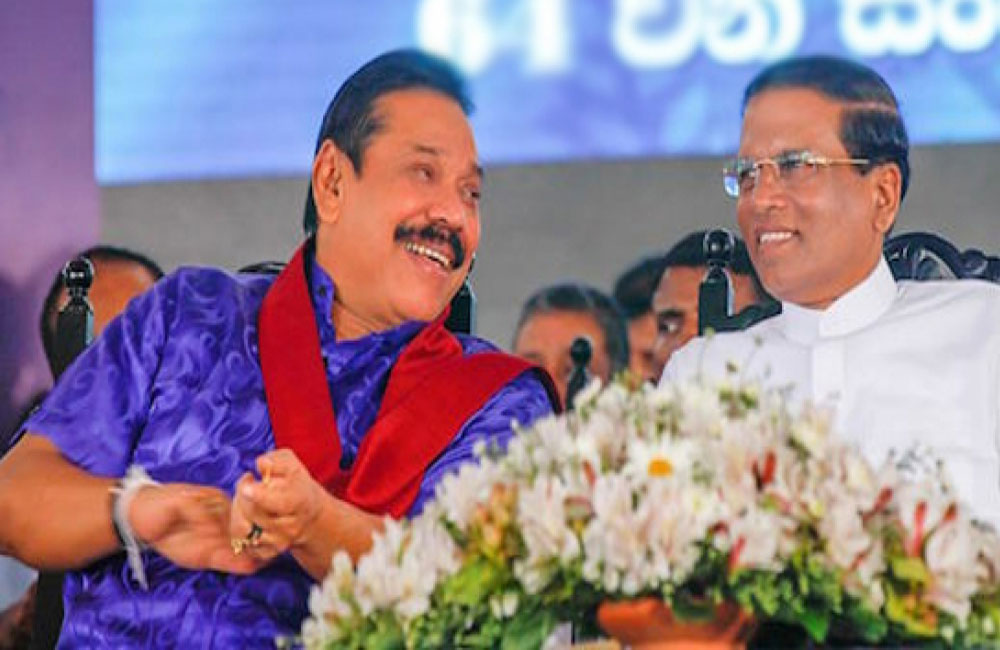
MR explains reasons for distancing from SLFP
Former President and incumbent Opposition Leader Mahinda Rajapaksa says that he distanced himself from the Sri Lanka Freedom Party (SLFP) since the party formed a government with the United National Party (UNP).
Rajapaksa has made this statement during a meeting with a group of SLFP members from local government bodies in the Kandy District held at his official residence yesterday (9).
However, he has further noted that there were no barriers for him to work with the SLFP now since the party was no longer in government with the UNP.
He has assured that he would not to allow any injustice to be inflicted on the SLFP parliamentarians.
According to Rajapaksa, the wish of every progressive force in the country was to defeat the UNP and everyone should joint for that purpose.
The meeting between Rajapaksa and the SLFPers was focused on the current political situation and the formation of the Sri Lanka Podujana Peramuna (SLPP).
Rajapaksa has said that the SLFP and SLPP could work together towards achieving its common goals.
Meanwhile, another group of SLFP members from the Batticaloa District had also met with Rajapaksa yesterday.
Page 294 of 510